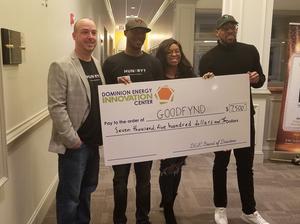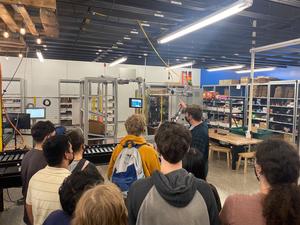
For the first time, the number of Americans with a social media profile has dropped by 3 percent in a year, between 2017 and 2018.
New research from Pew shows people are leaving Facebook in packs – 44 percent of young adults reported they have deleted the Facebook app from their phones in the past year.
Whatever their reasons for leaving – distrust, privacy, distraction, politics, the pull of other apps – Facebook has been in hot water over its treatment of users’ data.
Richmond's Shawn Boyer is one of these ex-Facebook users, and the founder and former CEO of Snagajob, an hourly job site with over 90 million registered hourly workers and 450,000 employer locations nationwide. It has since rebranded to Snag.
“I’m not a social media person,” he said. “I had a Facebook account but I deleted it a while ago. I have an Instagram account I don’t use and I have a Twitter account but there’s maybe 20 tweets.
“My wife jokes how it’s ironic I’m working on a social media company when I don’t even use social media.”
He’s referring to his latest startup goHappy, a new “backstage” social media platform he’s building with a team of five and $2 million of local funding so far.
Boyer said goHappy is still working on its positioning in the social media industry, learning from users as they go, but one way he described it is “Slack for personal life.”
Slack is an instant messaging platform for work teams, known for its reduction of back-and-forth emailing. It leverages features including user profiles, topic-focused channels and direct messaging.
In a similar way, goHappy aims to fill the gap between group messaging apps like iMessage and WhatsApp – which fail to create “stories” and memories because messages get buried chronologically – and mainstream social apps, which broadcast postured content to a large number of people and put users’ privacy in the hands of a data merchant.
“If someone gets hacked, we’re done. So we’re very intentional about keeping our users’ data safe.”
Nestled in between these two major use cases, goHappy is carving out a more intimate, authentic, and calmer group storytelling experience, Boyer said. Instead of clunky group threads and public social blasts, it provides a space for interactive sharing with small groups like college roommates, church friends and extended family. It doesn't sell the data or display ads.
“We want to be more like Dropbox and Slack,” Boyer said. “The data is yours. You own it.”
A similar social network called Path rivaled Facebook for a time, but shut down in October 2018 after an eight-year run. It initially limited the number of “friends” a user could have to 50, so it felt more intimate and private. According to TechCrunch, Path reached 15 million users in its prime and received a $100 million acquisition offer from Google.
The trouble Path ran into, as Boyer well knows, was its misuse of personal data – the company stored users' personal data on its own servers without permission and allegedly used it to send text messages to a user’s contact list without permission. Among other controversies, Path was fined $800,000 by the FTC in February 2013 for storing data from underage users. Eventually, the company dwindled and folded.
GoHappy is resurrecting many of the propositions that made Path popular, but is aiming to do things differently.
“We’re already investing in privacy now,” Boyer said. “We've worked with Synergy Technical on some of our security and then we're getting ready to kick things off with RiskBased Security here in town as well.”
As a startup scales, its vulnerability to risk increases, too.
“We’d become a target if we get traction in July 2019,” he said. “If someone gets hacked, we’re done. So we’re very intentional about keeping our users’ data safe.”
When Boyer stepped down from the chief executive role at Snagajob in 2013 and chairman in 2015, the company’s site had grown to around 1 million users per month. But starting Snagajob and starting goHappy are two different animals, he said.
For starters, Snagajob had a more clearly defined niche (hourly employment) and target demographic (job seekers). GoHappy is more difficult to define – anyone can use it because everyone has relationships.
However, the advantage of goHappy is a built-in viral component – the platform’s value comes from other people being on it. So if one user loves it, they’ll probably get their close relationships to sign up, too, and so on.
At Snagajob, Boyer learned important lessons about building a startup, including how to manage a product and recognize good engineering talent. If he didn’t have that background, he said, “I’d be more frenetic, I’d be less confident. It’s a huge risk and a big bet.”
Boyer and his team are up against some of the most powerful companies in the world, mostly planted in Silicon Valley, but he sees his Richmond headquarters as an advantage.
“[Users] would be leerier if we were yet another social media company popping out of Silicon Valley. In Richmond, we’re more relatable to the average user. We don’t have the ‘growth at all costs’ mindset which we’ve seen can lead to misusing technology, even if it’s unintentional.”




